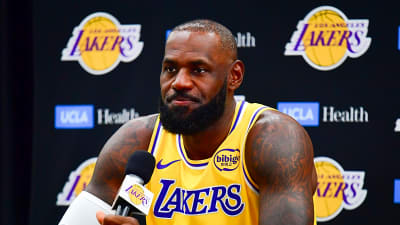
Look, we get it. Tennis fans are confused. Here we have players constantly whining about the packed schedule, crying about burnout, and then—surprise!—they’re all lined up for another exhibition event. But when Taylor Fritz and Jannik Sinner clap back at critics of the Six Kings Slam, they’re not exactly wrong about one thing: nobody’s turning down $6 million for a few days’ work.
The drama surrounding this Saudi Arabian spectacle has been brewing since day one, and honestly, the players defending it are getting pretty fed up with the criticism. Fritz didn’t hold back when addressing the haters, essentially asking them to find him another tournament where he can pocket that kind of cash for maybe three matches. Spoiler alert: they can’t.
Why Players Can’t Resist the Six Kings Slam Money
Let’s be real here—Fritz‘s argument is bulletproof from a purely financial standpoint. The American didn’t mince words when he told critics to show him another tournament offering $6 million for potentially just two matches if you’re a top seed. The silence from those critics? Deafening.
“I’d love for them to show me a tournament where you can go play three matches — well, for the top two seeds, two matches — and potentially make $6 million,” Fritz stated with his arms crossed, probably rolling his eyes at the absurdity of the question. “I’d love to hear that from them.”
The math is simple, folks. Even the U.S. Open‘s recent record-breaking $5 million payout looks modest compared to what Saudi Arabia is throwing around. That’s not even accounting for the guaranteed $1.5 million appearance fee each player gets just for showing up. Compare that to grinding through seven brutal matches at a Grand Slam, dealing with media obligations, and the physical toll—yeah, it’s a no-brainer.
Fritz also acknowledged the elephant in the room about tennis’s already insane schedule. “The unfortunate thing is the schedule is already extremely packed as it is. So you have to choose between these things that are very enjoyable to do and load it on to how packed the tour already is,” he admitted. At least he’s honest about the contradiction.
Sinner’s Comeback Trail and Injury Concerns
Meanwhile, Sinner isn’t backing down from defending the exhibition either, despite his recent injury troubles that have become impossible to ignore. The Italian superstar, who pocketed last year’s Six Kings Slam prize, was refreshingly direct about the financial motivation.
“The money is nothing we’re trying to hide. We know how much is at stake here, and it would be a lie if I told you it wasn’t a motivation,” Sinner said. Finally, some honesty in professional sports! “Every player here will try to win as many matches as possible. It’s like any other exhibition — except here there is a bit more motivation.”
But here’s where things get interesting—and concerning. Sinner’s injury history reads like a medical textbook. Just weeks ago, he was cramping up spectacularly at the Shanghai Masters, forcing him to quit mid-match. Before that, it was stomach issues during the Cincinnati Open final against Carlos Alcaraz, where he retired while trailing 5-0. And who could forget his dramatic grass-court collapse at Wimbledon against Grigor Dimitrov?
The pattern is becoming harder to ignore, and former Italian Davis Cup captain Paolo Bertolucci didn’t sugarcoat it: “The boy is a little fragile. He had cramps, then stomach problems, then elbow problems, then blisters and hip problems.” Ouch. That’s not exactly the endorsement you want as a professional athlete.
The Saudi Arabia Tennis Takeover Nobody Asked For
Here’s where the story gets really spicy. Saudi Arabia isn’t just throwing money at random tennis exhibitions—they’re systematically buying their way into the sport. The WTA Finals in Riyadh, the ATP Next Gen Finals in Jeddah, and the Public Investment Fund sponsoring tour rankings? It’s a full-court press that’s making some tennis legends uncomfortable.
Chris Evert and Martina Navratilova have been vocal critics of tennis’s growing ties to Saudi Arabia, citing legitimate concerns about LGBTQ+ and women’s rights in the kingdom. But when you’re dangling $6 million checks in front of players who might never see that kind of money again, principles become negotiable real quick.
The tournament itself is a Netflix special, which adds another layer of commercial appeal. Six players, four days, and enough prize money to buy a small island. Sinner faces Stefanos Tsitsipas on opening day, while Fritz takes on Alexander Zverev. Winners advance to face Carlos Alcaraz and Novak Djokovic respectively, building toward Saturday’s money-grab finale.
The Reality Check Tennis Needs
Look, nobody’s saying these players are wrong for chasing the bag. In a sport where careers can end with one bad injury and most players outside the top 50 struggle financially, $6 million is life-changing money. Fritz and Sinner aren’t hypocrites—they’re pragmatists operating in a system that prioritizes profit over principles.
But let’s not pretend this is purely about competitive tennis. The Six Kings Slam is sportswashing at its finest, wrapped in Netflix production value and enough prize money to make everyone conveniently forget about human rights concerns. The players know it, the organizers know it, and the fans definitely know it.
Fritz summed it up perfectly when describing the royal treatment they’re receiving in Saudi Arabia: “Just coming out of the airport last night was crazy. We are getting treated very, very nicely.” Translation: the money talks so loud that everything else becomes background noise.
The tennis world is changing, whether fans like it or not. Saudi Arabia’s checkbook diplomacy is reshaping the sport’s landscape, one exhibition at a time. Players like Fritz and Sinner are just riding the wave while they can, because when someone offers you $6 million for a weekend’s work, you don’t ask too many questions about where the money comes from.
More must-reads:
- No. 17 Vanderbilt shows it's a legit SEC title contender with win over No. 10 LSU
- Examining potential landing spots for Phillies' Ranger Suarez
- The 'College basketball AP preseason No. 1 teams' quiz
Breaking News
Trending News
Customize Your Newsletter
 +
+
Get the latest news and rumors, customized to your favorite sports and teams. Emailed daily. Always free!








